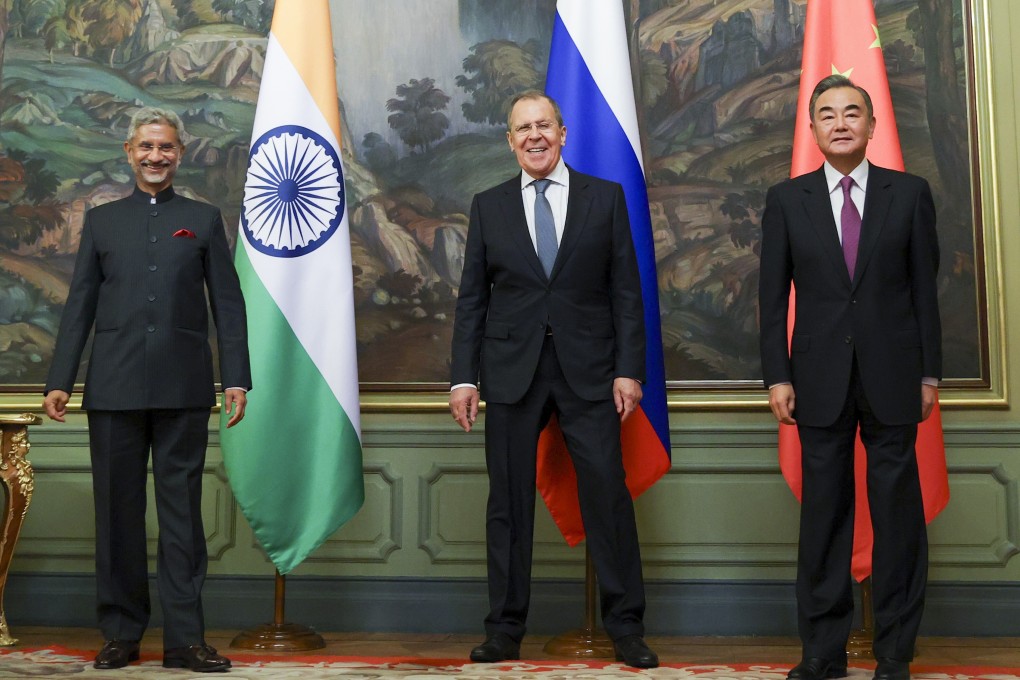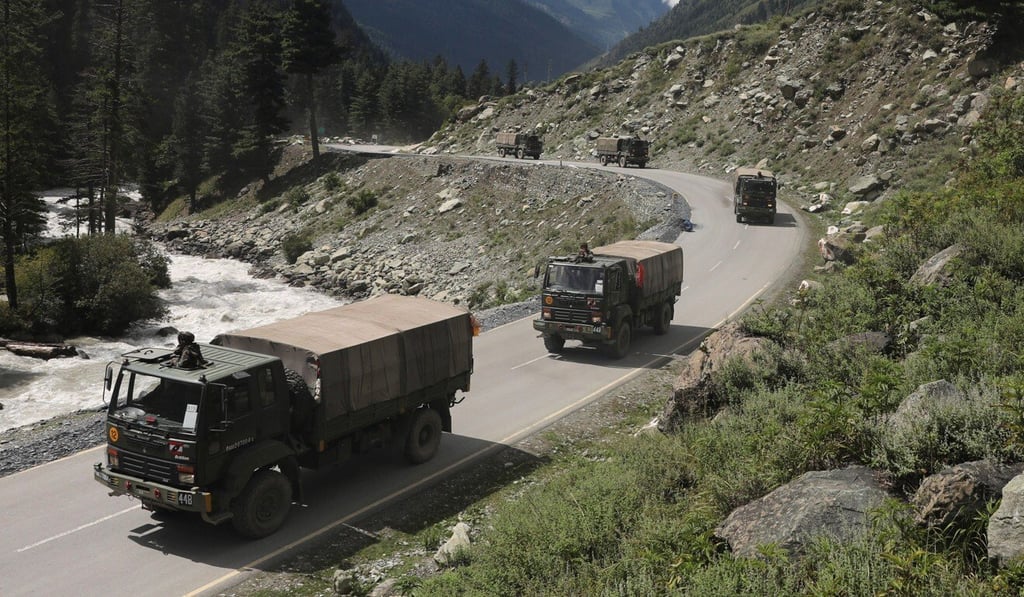China, India foreign ministers agree to ease border tensions at in-person Russia meet
- Chinese foreign minister Wang Yi and his Indian counterpart Subrahmanyam Jaishankar met for the first time in months at a summit held in Russia
- They agreed in a joint statement that both sides ‘should abide by the existing border affairs agreements’, maintain peace and avoid escalatory actions

The nations “should abide by the existing border affairs agreements and regulations, maintain peace and tranquillity in the border areas, and avoid any actions that may escalate the situation,” they said.
India and China have been increasing their troop strength along the 3,488-kilometer (2,167-mile) border known as the Line of Actual Control since May. The military stand-off, in which gun shots were fired this week for the first time since 1975, remains unresolved despite multiple rounds of negotiations between military commanders and diplomats and two phone calls between Wang and Jaishankar.

The latest skirmishes came just days after Indian Defence Minister Rajnath Singh and his Chinese counterpart, General Wei Fenghe, agreed to ease tensions after “frank and in-depth discussions” in Moscow.